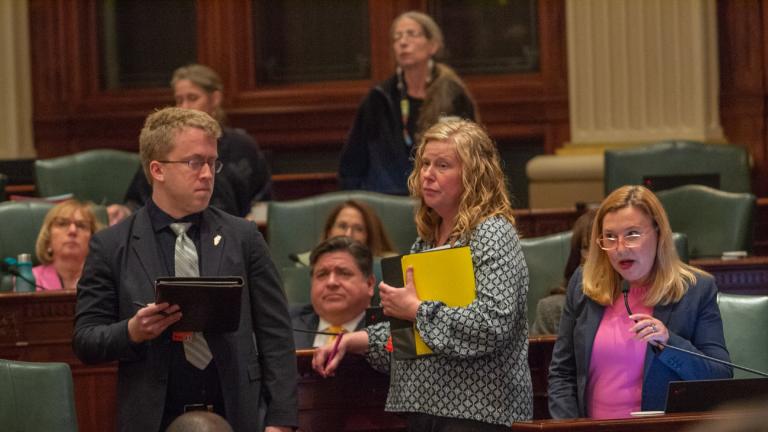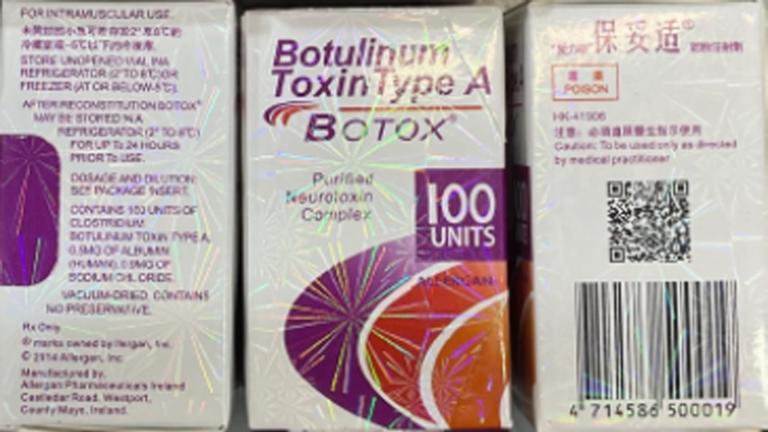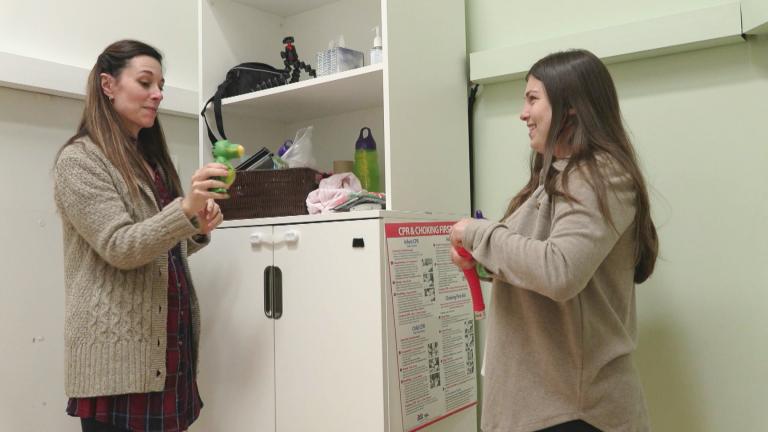A surge in respiratory illness caused by COVID-19, the flu and RSV has created a “triple-demic” threat that is leading to shortages of prescription medications — especially for children.
Pharmacies across the country are seeing surging demand for child-friendly versions of Amoxicillin, Tamiflu and other drugs. That demand has led at times to empty shelves and parents having to try multiple pharmacies to find their child’s prescription.
“The shortages right now are a classic example of an acute spike in demand and a supply that just can’t in the short term keep up with it,” says Sterling Elliott, clinical pharmacist and assistant professor of Orthopaedic Surgery at Northwestern University’s Feinberg School of Medicine.
“We’ve seen a rise in cold viruses and we’ve seen the spike in the flu viruses — all in children,” says Elliott. “The predominant shortages that we’re seeing are in the liquid medication. So, I think by and large it’s young patients, particularly children who are not yet capable of swallowing pills, who are most impacted here. And that’s the population that we really have watch out for and look out for their best interests.”
Dr. Sameer Patel, a pediatric infectious disease specialist at Lurie Children’s Hospital, has the responsibility of promoting the best use of antibiotics and has been working to help the hospital manage the current drug shortage.
“Unfortunately, one of the things that I’ve had to do the last month is talk about how to manage and work around these drug shortages,” says Patel. “What we’re seeing, what I’m hearing from my colleagues, is that our preferred drugs for in an outpatient setting for certain preparations, like for example Amoxicillin … we’re seeing shortages, which means that we have to sometimes choose other options which are not preferred.”
Patel says one of the impacts of not being able to use the first-choice drug for a particular infection is that patients may have to use a broader spectrum antibiotic – and that may have more side effects.
Additionally, one of the impacts of the COVID-19 pandemic is that it disrupted the normal circulation of other viruses – making it harder for drug manufacturers to predict demand.
“It’s something that is a unique consequence of the COVID-19 pandemic,” says Patel. “We have altered the circulation of other viruses by isolation and masking. And therefore the normal patterns of infection have been disrupted.”
One thing everyone can do to help reduce demand for drugs that are currently in short supply is to get vaccinated.
“It’s very, very important that we use vaccination as important strategies to reduce any sort of illness,” says Patel.








